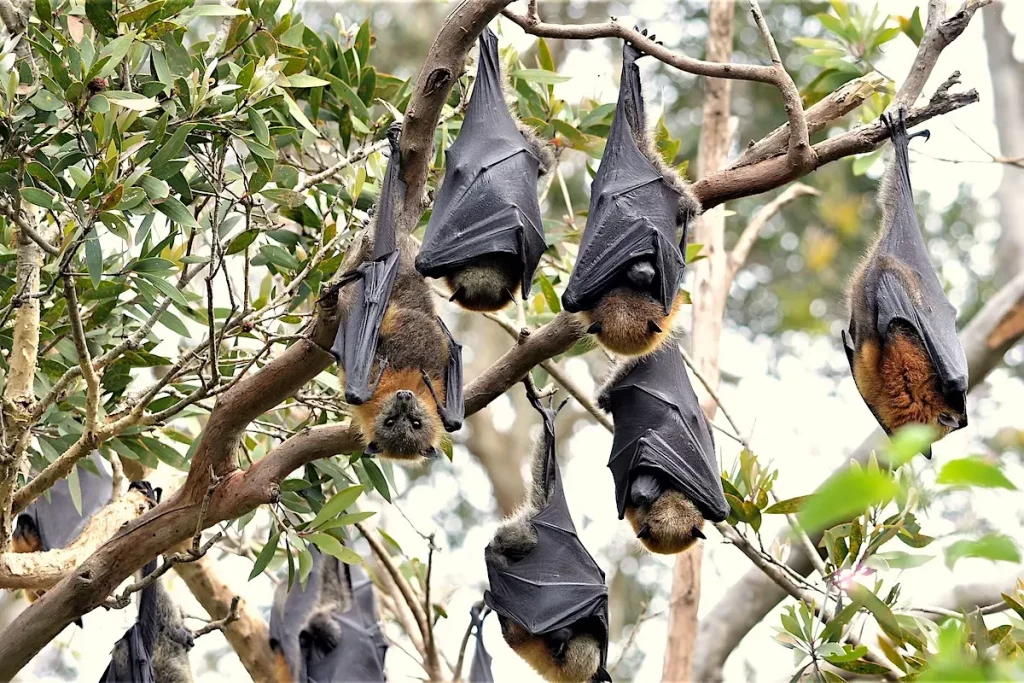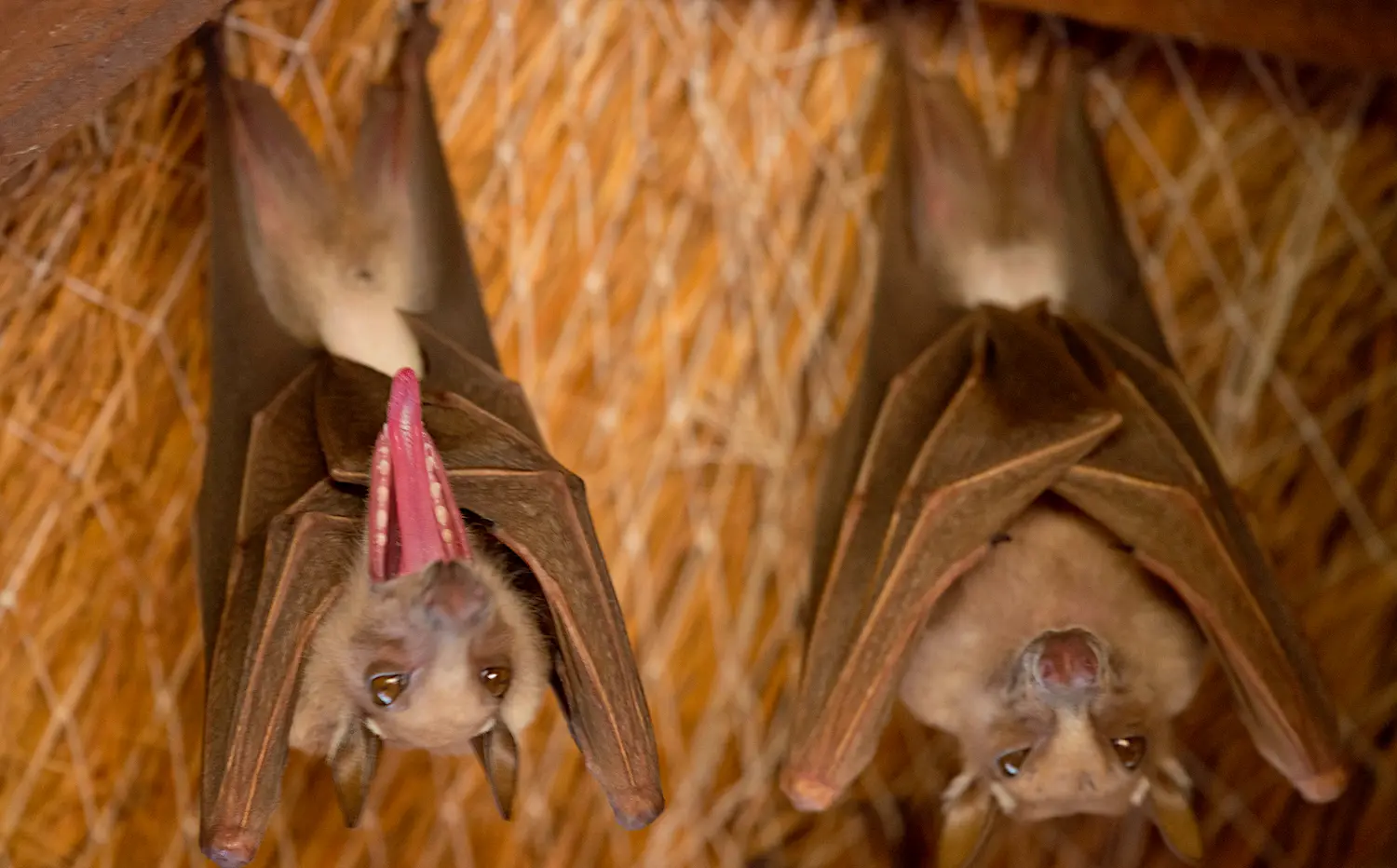Did you know that bat-watching is becoming a thing? They are sometimes called flying rodents, but this description couldn’t be more wrong. Bats are not related to rodents but belong to a superorder that includes animals such as pangolins and whales.
They are often overshadowed by their more popular counterparts in the animal kingdom, such as hippos, crocodiles, and monkeys. However, these elusive creatures play a vital role in maintaining the balance of ecosystems worldwide. The small West African country of Gambia is no exception, as it is home to several fascinating bat species. Some years back, Bangor University visited us and as part of their week did some research into bat species found in Gambia. It was fascinating hearing their sonar machines identifying the various species we have just at Footsteps alone. Join us as we dive into the enchanting world of bats in Gambia, exploring their importance, diversity, and unique adaptations.

Ecological Importance
They are incredible pollinators, dispersers of seeds, and natural pest controllers. In Gambia, the presence of bats helps maintain ecological equilibrium by controlling insect populations, including mosquitoes that can transmit diseases. By consuming tonnes of insects each night, bats play a crucial role in reducing crop damage and defending against agricultural pests, benefiting both farmers and the environment.
Biodiversity of Bats in Gambia
Gambia boasts a rich diversity of bat species, with over 22 documented species found across its varied habitats. One of the most iconic species is the Egyptian fruit bat (Rousettus aegyptiacus), easily recognized by its large size and impressive wingspan. These bats are frugivorous and play a crucial role in seed dispersal, aiding forest regeneration.
Another notable species found in Gambia is the Meridianus horseshoe bat (Rhinolophus landeri), known for its horseshoe-shaped noseleaf. These insectivorous bats use echolocation to navigate and locate prey, emitting high-frequency sounds that bounce off objects in their surroundings. This extraordinary ability allows them to hunt even in complete darkness with extraordinary precision.

Photo by Jan Erik Roer ©
Bat Conservation Efforts
Recognizing the importance of bats in maintaining ecosystems, conservation organizations in Gambia have been actively working to protect these species and their habitats. Bat conservation initiatives focus on raising awareness among local communities, monitoring populations, and preserving critical roosting sites such as caves and trees. By promoting sustainable practices and preserving natural habitats, these efforts ensure the long-term survival of Gambia’s bats.
Myths and Realities
Bats have long been surrounded by myths and misconceptions, often associated with darkness and supernatural powers. However, it is essential to separate fact from fiction. Contrary to popular belief, the vast majority of bat species are harmless and play a vital role in maintaining healthy ecosystems. Bats are not blind and do not attack humans unprovoked. In fact, they are incredibly beneficial creatures that deserve our respect and conservation efforts.
Bat Watching in Gambia
For wildlife enthusiasts and adventurers seeking an extraordinary experience, bat watching in Gambia offers a unique opportunity. Guided tours and excursions take visitors to the heart of prime bat habitats, where they can witness the breathtaking spectacle of thousands of bats emerging from their roosts at dusk. As the sky darkens, these agile creatures take flight, creating an awe-inspiring display that captures the imagination and fosters a deeper appreciation for the natural world.
Conclusion
Bats in Gambia are more than just fascinating creatures; they are invaluable contributors to the delicate balance of ecosystems. Their diverse species play crucial roles as pollinators, seed dispersers, and pest controllers, benefiting both the environment and local communities. Understanding the importance of bats and supporting conservation efforts can ensure a harmonious coexistence between humans and these extraordinary winged mammals.
So, next time you gaze up at the night sky, remember the hidden heroes of the night – the bats of Gambia. They may be elusive, but their contributions to the natural world are irreplaceable.
